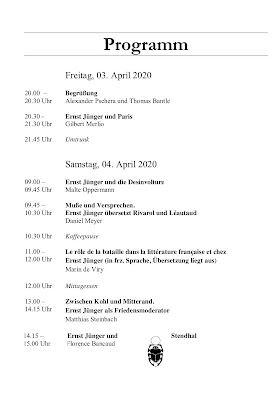There are several examples that help us grasping that particular
zeitgeist lived in the first half of the 20th century. A book such as
Thomas Mann’s
The Magic Mountain gives us a description of the
moral and spiritual decomposition of the then bourgeois society. At this
time, in the bashed and defeated post-war Germany, nihilism had turned
to be a dominant moral disposition. Oswald Spengler announced the
decline of the West amidst the hubris of the Great War; Nietzsche’s will
to power was convincing posthumously a younger generation of German
intellectuals; and Heidegger was caught exasperating at the end of
philosophy. This aura of decadence marked the period, and to that faith
in the inevitable progress of humanity so specific and characteristic of
the 19
th century there followed an intellectual and
existential despair. Ever since the moment when the idea of progress was
contested by the destruction caused by the war, that a sense of moral
disorientation had necessarily to follow.
It is this crisis of the
idea of progress that we can feel all over Ernst Jünger’s oeuvre, from
his famous diaries of his experience in the Great War (In Stahlgewittern), to his “prophetic” work Der Arbeiter and
his late novels. But one book of his in particular allows us to
penetrate in the nihilistic zeitgeist of the inter-war period: his Auf den Marmorklippen, published at the zenith of Hitler’s power, in 1939. This little book – On the Marble Cliffs, in English –, forgotten in the same way which its author is neglected by the intelligentsia,
tells us more about our own times – which are also times of crisis –
than several of the “scientific” works that are widespread today, and
which denounce a supposedly evident return of fascism. In this jüngerian
tale, the despotic figure of the tyrant appears in its most violent
essence, as the result of a cosmological disorder that hits society in
all of its foundations. On the Marble Cliffs is a book that
needs to be remembered, the meaning of which seems today almost as
intelligible – and appropriate – as when it was first published.






